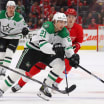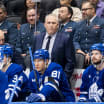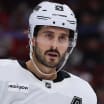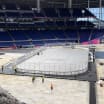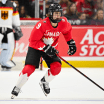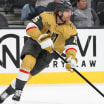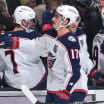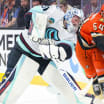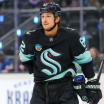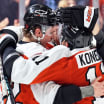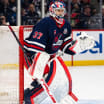NHL.com's Q&A feature called "Five Questions With …" runs every Tuesday. We talk to key figures in the game and ask them questions to gain insight into their lives, careers and the latest news.
The latest edition features University of Wisconsin coach Tony Granato.
Five Questions with Tony Granato
Wisconsin coach discusses developing top prospects, ignoring gender in hockey
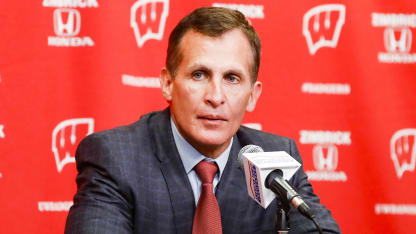
© Icon Sportswire/Getty Images
Tony Granato left the NHL for his alma mater almost five years ago.
And since returning to the University of Wisconsin as their men's hockey coach on March 30, 2016, the former NHL forward and coach said he hasn't had a boring day.
"I won't say I like it better (than the NHL). I like it for different reasons," Granato said. "There are different challenges at both and different rewards at both. It is a lot more grinding and more hours in college than in the NHL because you've got recruits, alumni, boosters, administration. You've got you and your three other coaches to do a whole heck of a lot of jobs. That's OK. That's the way it is. I'm responsible for the 25 guys that are here plus the recruits that we have coming in plus lots of other things that go along with it that are different than the responsibilities of being an NHL coach."
The Badgers are 5-5-0 this season and haven't yet qualified for the NCAA tournament under Granato, who played 13 seasons in the League before spending time behind the bench with the Colorado Avalanche (coach and assistant), Pittsburgh Penguins (assistant) and Detroit Red Wings (assistant) from 2002-16.
But Wisconsin has had four players selected in the first round of the NHL Draft since 2018. Forward Dylan Holloway was selected by the Edmonton Oilers with the No. 14 pick in the 2020 NHL Draft, forwards Alex Turcotte (No. 5 by the Los Angeles Kings) and Cole Caufield (No. 15 by the Montreal Canadiens) were selected in the 2019 NHL Draft, and defenseman K'Andre Miller was selected with the No. 22 pick by the New York Rangers in the 2018 NHL Draft.
"I love where I'm at," Granato said. "I am planning on being here for a while. I said when I got here that I was committed to coaching all the kids I recruit. It would be hard to walk away when you have kids coming in. I want to do this for a long time."
Here are Five Questions with ... Tony Granato:
The challenge of coaching college hockey this season is a great place to start. It's a challenge for everybody since we're all going through things that are not quite normal. Can you explain and describe the challenge of coaching college hockey in this pandemic season?
"Well, first of all I think we're very fortunate to be able to play. To have 10 games in already before Christmas with how things looked, with the challenges that our university had in getting our athletes put in a position where we felt they were safe, is important. It's been a daily thing. You wake up and there could be some adjustment or change or something you're dealing with that normally during a hockey season you wouldn't be dealing with. I think it's been good. The athletes become stronger and better because of it, because they're dealing with the adversity of the little things that could go wrong in a season. Once you move on to professional hockey, there's lots of things that happen and change and different challenges you get faced with, so the players are somewhat going through a challenge to work through to try to see if they can handle the adversity and become better for it later on down the road. I'm proud of our guys."
Wisconsin has had a number of players selected in the first round of the NHL Draft, more selected in later rounds, too, and it makes me wonder about the development model. What is your development model so they can be good college hockey players and Wisconsin can be a competitive team, but also so that the players can be ready to make an impact as pros when they leave school?
"You're working on their development, but you know that as soon as they get to be the player you want them to be, they're going to move on to the NHL. Alex Turcotte is a perfect example. K'Andre Miller is another perfect example. This year, we'll probably lose Caufield, and Holloway could go, too, though I'm hoping Dylan comes back for one more year. But that's the way it is and you understand that when you recruit high-end guys. Your job is to help them develop and grow to be ready. The better they get and the better you do developing them means the faster they're going to be gone. You have to live with that and understand that's part of it. … You hope that what you gave them here gave them the base and fundamentals of what they'll need to get to the NHL. That's also the fun part for me, because once the NHL season starts and we've got guys playing on different teams, you turn the TV on and you watch your guys and you see their highlights. That's the joy of coaching college, watching your kids advance and move on."
Tony Granato joins the crew on NHL Now
Along those lines of preparing them for the NHL, do you ever find yourself when you're coaching these guys saying, 'Hey, if you get to the NHL, this is the way it's going to be. I know because I played there and I coached there?'
"I don't say I know. I don't tell them that. But I tell them about my experiences about when I was working with certain players or I can refer back to different experiences I've had. I was there long enough to know that these kids either have a tremendous understanding of what they need or whether they're lacking in something that they're going to have to sharpen up on before they get to the next level. That's my job, to teach them and help them and guide them. I don't want them to be surprised. I don't want them going onto an NHL bench, going into an NHL training camp or any sort of position in the NHL and not been told or taught what to expect. I'm trying to make sure I polish them up. So, I'm hard on them at times, I push them at times like maybe their coaches will at that level, but I'm honest with them as far as where their development needs to be and what the focus needs to be on so they can get to the next level and have the best chance for success when they do."
The impact the college game is having on the NHL has grown. A lot of players who maybe in the past would have gone to Canadian juniors are now going the NCAA route instead, or going there after they play major junior hockey in Canada. How has the talent level of college hockey changed and impacted how you have to coach and prepare?
"It's deeper. The USHL has done a phenomenal job of developing kids. It's good two ways: From a development standpoint, college hockey is tough. It's grinding. It's competitive. In the Big Ten, there are no bottom feeders. If we had to get two wins this weekend, I don't know who I'd pick to play in the conference because of how well these teams are coached and the depth in every program. Second, I think the coaching in college hockey is great.
"It's a great stepping-stone, but I also think the life experiences you get and having to balance going to school and be able to handle the workload in the classroom is good for your development as a person and player as well. It used to be a thought that if you have to go to school, too, it's going to hurt your hockey, but it's absolutely the opposite. I've learned the kids that can organize it and take care of the schoolwork have helped themselves so much more that when they leave campus and go to an NHL camp, they are well more rounded and capable of handling a lot of different things that come at them."
Emily Engel-Natzke, the Badgers video coach, was recently hired to work in the same capacity for the Hershey Bears of the American Hockey League. Your sister, Cammi Granato, is a Hall of Famer who is now a pro scout for the Seattle Kraken. Kendall Coyne-Schofield was hired to work in player development with the Chicago Blackhawks. Each one of these hires has been celebrated. It's great, it's earned, but do you think we'll ever get to a point where it'll just be considered normal to have talented women working in the game?
"I like that question a lot. I don't remember who brought it up at the Olympics a few years ago, but it was about how we refer to women's hockey as women's hockey. Then someone else said, 'No, it's not women's hockey, they're hockey players and that's it.' If you can just think of it that way, that it's hockey, that's what I think of when I hear about the women you just named. They're skilled, they're talented, they know the game, they understand the game and they've earned the opportunity to be part of the game whether they're a woman or not. The respect that they've earned and the positions they've earned is because they deserve them. I hope it does come to fruition someday where we don't have to celebrate every time a woman gets a position, that it becomes regular. You've watched the growth of women in the sport. It's great. It's only going to get better because you have role models for younger players. You've had that since the 1998 Olympics (when women's hockey first participated) and now there are thousands of girls who watch Kendall and say, 'I want to be like her someday.'"

